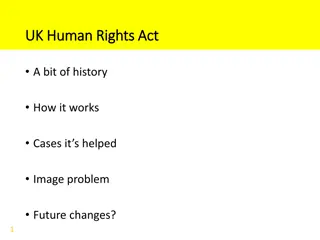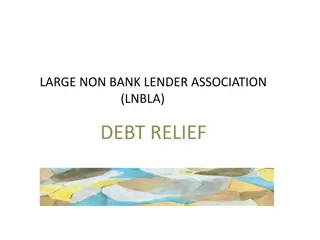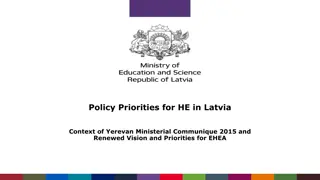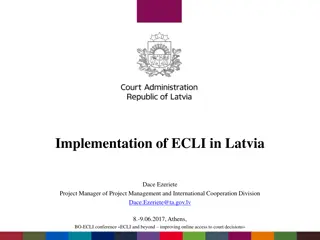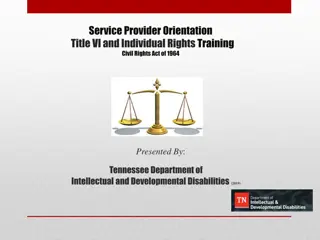Addressing Overindebtedness in Latvia: Causes, Situation, and Human Rights
Explore the causes and current situation of overindebtedness in Latvia, including financial and psychological factors. Understand the impact on human rights and the need for policies to prevent debt traps. Learn about the challenges faced by overindebted individuals and possible solutions. Highlight the importance of tackling overindebtedness to ensure social protection and privacy rights.
Download Presentation

Please find below an Image/Link to download the presentation.
The content on the website is provided AS IS for your information and personal use only. It may not be sold, licensed, or shared on other websites without obtaining consent from the author. Download presentation by click this link. If you encounter any issues during the download, it is possible that the publisher has removed the file from their server.
E N D
Presentation Transcript
Overindebtedness in Latvia: Causes, Actual Situation, Execution and Human Rights Let s prevent debt traps! Policies to tackle overindebtedness across Europe 11th May 2017, Prague El na lere-Fogele, EAPN-Latvia Member of Board, Expert
Contents of the presentation Actual situation regarding overindebtedness. Interviews taken form 10 overindebted persons, focusing on their personal experience of overindebtedness and their suggestions what are their main difficulties, what would help them Causes of overindebtedness Non-judicial and judicial execution procedures Human rights aspects from the prospective of fundamental rights (rights on social protection, violation of privacy)
Causes of overindebtedness: Financial Extremely low general income level (36% of employees are paid the minimum salary EUR 380 per month) Persons not able to pay past debts (especially after the economic crisis in 2008/2009) Past bank loans Easy access to the consumer credits from banks before the economic crisis Easy access to distant credits Inability to par for related to housing (electricity, heating, water, gas, garbage, real estate tax, rent) Urgent need to pay for services (health care, including medical examinations) or to by some products, like medicine or urgent household needs (eg. broken washing machine)
Causes of overindebtedness: Psychological / Mental Easy access to credits, especially distant crediting People does not assess their ability to cover the debt payments Sometimes people are too optimistic about their future income Vicious circle: take next loans to pay actual debts A wish to demonstrate status via products a person can not afford, purchase of luxury items TVs, mobile phones, laptops etc.) Debt is not a brother Latvian proverb. Debt is a shame, labeling and stigmatization of overindebted persons, loss of reputation, person considered as unreliable
Insolvency of a Natural Person A person does not have the possibility of settling debt obligations whose term of execution has taken effect and the debt obligations exceed EUR 5000 in total; or In connection with provable circumstances, it will not be possible for this person to settle debt obligations whose term of execution will take effect within a year and the debt obligations exceed EUR 10 000 in total. Must pay deposit in amount of two minimum monthly salaries (EUR 360 x 2 = EUR 760) prior the submission of the insolvency application to the Court Deposit is the reason why insolvency procedures are not available for the poor ones (having an official status of a needy person awarded by Municipal Social Services Violated Human rights discrimination on the basis of financial / material status
Main legal acts regarding execution Civil Procedure Law Law on Bailiffs Law on Non-judicial Recovery of Debts Insolvency Law Regulations of the Cabinet on the Procedure for Deposit Payment in Case of Insolvency Regulations of the Cabinet on the Cost Limitations for Non-judicial recovery procedures
Extra-judicial debt recovery Performed by private Debt Recovery or Retrieval Companies Instruments: informative letters about the debt (10 EUR / 1 letter), phone calls (7 EUR / 1 call). Operators use manipulative methods and tips to make psychological pressure on the debtor No execution on real estate or other properties Often violated fundamental human rights principles regarding privacy
Extra-judicial debt recovery In communication with a debtor it is prohibited: to use aggressive means of communication (including expression of threats and carrying out of activities which infringe gender, age, race or ethnicity and safety, religious, political or other beliefs, disability, social background and financial or family status, as well as sexual orientation; to communicate with the debtor in a manner offensive to his or her dignity or honour; to visit the debtor at his or her place of employment, place of the performance of work or place of residence without prior consent of the debtor; to provide false or misleading information regarding the consequences of non-payment of the debt.
Judicial Execution Procedures Performed by Sworn Bailiffs after the final decision of the Court is taken Instrument: execution order issued by the bailiff Executions on real estate Executions on bank accounts thus blocking any access to the bank account and living wage (Law provides that a person has right to be left money as for one monthly minimum salary, commonly people does not know their rights) Executions on vehicles (the debtor is not able to perform any activities with the property to sell it, to pass the yearly technical examination etc. And bailiffs are not interested to sell the arrested vehicle, if it is an old model Executions on valuables Human rights aspects right on social protection, right on property
Possible solutions A holistic and individualised approach needed. Every individual situation should be evaluated Decrease the level / amount of debts needed to met requirements to submit a claim for insolvency of a natural person Make exceptions for deposit payment to cover costs of insolvency administration for persons with low income Free state-provided debt counselling for overindebted persons on legal issues and budget planning / management More drastic requirements for distant crediting, compulsory income test for applicants Debt release for needy persons (?). Distract monthly debt payments from the general income to qualify for the legal status of a needy person
Thank you for attention! Time for your questions! elina.alere.fogele@eapn.lv







